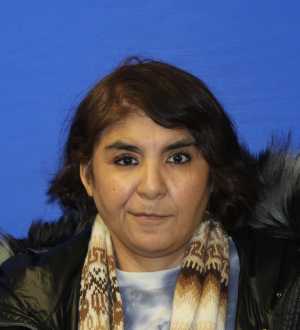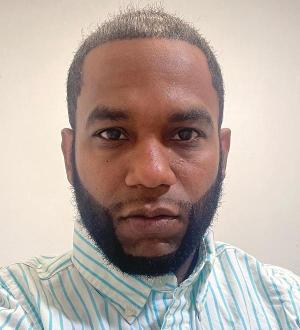Women in Antiquity
Course Info
Assignments
Content
Resources
Return to schedule of responses
Topic: Women in The Epic of Gilgamesh
Due: Sun Feb 9
Prompt: What do this week’s primary source readings tell us about ideas of gender in ancient Sumer?
The documents for this week are:
For your online response this week, choose one of the primary source readings and write a post that includes the following:
- Which reading did you pick? If there’s a reason it interested you, what was it?
- What passage or detail in particular from this reading jumped out at you as you read through it?
- What do you think the author was trying to communicate?
- In your opinion, what is this document telling us about the time and place it comes from?
- What about this document seems to relate to, support, or even contradict our other readings about this time and place?
- What would you like to find out more about?
Responses for Week 2
Responses for week 2 of the course
 Mark Wilson
940
Mark Wilson
940
2025-02-03 20:12:08
Hi everyone! Here’s the page for our first round of weekly responses. The goal is to post your reactions to the readings, or in other weeks to examples of what we are talking about in class, as a way of helping us individually and collectively gain some insight into this specific place and time. Our online discussion this week relates to The Epic of Gilgamesh, which was the set of primary source readings assigned for Tuesday.
This kind of story may be new to a lot of you, and you may need to read through the tablets a time or two to get a sense of what’s going on. For this response, I want you to find a moment or scene that stands out to you, because it’s interesting or unexpected or because it gets you wondering.
Look for characters. Think about the individual people in the town and what they are experiencing. Find a moment and react to it with your own thoughts and ideas about what it tells us and what you want to know.
The Epic of Gilgamesh Tablet VI. Ishtar and the Bull of Heaven
 Emma Perez Sr
1493
Emma Perez Sr
1493
2025-05-27 11:13:02
The article I chose is “The Epic of Gilgamesh Tablet VI. Ishtar and the Bull of Heaven” , the title is what intrigued me. A couple details that particularly jumped out to me was the unconventional poetry displayed in the story. Quotes such as”your goats shall bear triplets, your ewes shall bear twins, your donkey when laden shall outpace any mule”.
I believe the author was trying to communicate Gilgamesh’s rejection to Ishtar and how this defying moment affected the rest of the story, by Ishtar's rage leading to her unleashing the bull. This document is telling us about a time and place where rage took over a person and they let it define them. Ishtar didn’t care who would get hurt or came across the bull. This document seems to be similar to our other articles we have come across because I view a theme of men and women not being pleased with what they have received so instead they retaliate and hurt other people in the process of trying to distinguish one particular person. What if Gilgamesh had accepted her proposal , would she still have that aggressive side towards her? This is what I would like to find out more about.
Week 2
 Christopher Alvarado
1160
Christopher Alvarado
1160
2025-03-13 09:03:18
I chose Table I from "The Epic of Gilgamesh" as it delves into profound ancient ideas about leadership, friendships, and differences between nature and man-made things. One specific passage that interested me is the description of Gilgamesh as a tyrannic ruler; it clearly marks his abuse of power over the people, which leads the gods to decide that they should produce Enkidu, a match for him.
The author is stressing accountability and righteousness in leadership, that leaders assumed by people to be divinely appointed were still accountable before the people. This is in accordance with deep-seated fears in Mesopotamian society about unlimited power and the possibility that it would be misused, that leadership is not so much a matter of power, but also about the preservation in society of order and about ethical behavior. This is a mature idea of leadership, that divine approval did not equate with authorization for tyranny, and stressing in particular sensitivity to the ethical obligations that accompanied leadership. The following is a critical analysis of Mesopotamian society as presented by a culture that was favorable toward equal leadership but uncertain about autocratic leadership. This is in agreement with modern scholarship in that it sees the same sentiments about leadership positions and ethical behavior. I am also curious about how historical leaders were able to shape the legend of Gilgamesh, and through what means mythology was applied so that cultural and political ideology would be disseminated.
Response for Week 2
 Yeili Lainez
1001
Yeili Lainez
1001
2025-02-13 11:45:36
I chose table ” VI. Ishtar and the Bull of Heaven” In table 6 we discuss goddess Ishtar's love not being reciprocated by Gilgamesh. In the story Goddess Ishtar saw Gilgamesh and she fell in love with him. She proposed to him to be his husband. Gilgamesh rejected Goddess Ishatar. Gilgamesh knew her bad reputation of killing his ex lover.
One of the scenes that stood out to me was when Goddess Ishtar proposed to Gilgamesh. “Be you my husband and I your wife!‘Let me harness you a chariot of lapis lazuli and gold, its wheels shall be gold and its horns shall be amber. Driving lions in a team and mules of great size, enter our house amid the sweet scent of cedar! ‘As you enter our house, doorway and footstool shall kiss your feet! Kings, courtiers and nobles shall kneel before you.” Goddess Ishatar persuades Gilgamesh offering him a god’s lavish life with plenty of gold and power. She thought Gilgamesh would fall for the extravagant life she was offering him. In fact Gilgamesh
disrespected her by reminding goddess Ishatar the fate of his ex husband for this reason Gilgamesh refused to marry Goddess Ishtar. This infuriated Ishtar and her character evolves as the story unfolds; she went from being extremely pleasant to Gilgamesh to trying to kill him with the bull of heaven.
It makes me wonder if Ishtar's reaction to Gilgamesh was based on his rejection or because he calls her out for being an evil wife.
Gilgamesh
 Andrea Palacio
995
Andrea Palacio
995
2025-02-10 12:59:08
What stood out to me the most in the text was how similarly to current day women in society take on many roles yet are not truly given the adequate recognition. It was interesting to see how in the text they used Shamhat to do the work of man yet she never received recognition for pulling it off. She was merely seen as sexual object that was at their disposal. If it were not for Shamhat seducing Ekindu things would not have turned out the same for Gilgamesh. I also gathered that women are constantly given supporting roles although it seems they are the brains behind the operation. Gilgamesh's mother was wise and told him to befriend Ekindu without that bit of wisdom things could have also turned out differently as Gilgamesh didn't know what to do. In public he is seen as a masterful, strong, entity however, seems as if his mother is the one who deserved the credit. Just as Shamhat deserved recognition for what she did.
Tablet 6 Story of Gilgamesh
 Veronica Castaneda
985
Veronica Castaneda
985
2025-02-09 22:50:27
Back in Uruk, Gilgamesh"s beauty provokes the desire of the Goddess Ishtar. The Goddess proposes to him, but Gilgamesh scorns her reminding her of the fates suffered by many of her conquests. Ishtar is enraged and rushes up to heaven to persuade her father Anu to give her the fieries also known as the Bull of Heaven so that she can punish Gilgamesh with death. The Bull of heaven causes havok in Uruk, But Gilamesh and Enkido discover it's weak spot and kill it. They insult Ishtar further and return to the palace in thriumph to celebrate their victory. This story is about Gilgamesh struggle to find the meaning in life. Gilgamesh defied death, therefore becoming the first epic hero in ancient history. The grief of Gilgamesh over his friend's death can resonate to anyone struggling with grief and find the meaning of life in precarious situations even in modern times.
Gilgamesh, Tablet 1: The Coming of Enkidu
 Francisco Baez
975
Francisco Baez
975
2025-02-09 19:49:58
I have selected “The Epic of Gilgamesh: Tablet I” for this discussion because it presents a heartfelt exploration of friendship, humanity, and the harmony between civilization and the wild. The exchange between Gilgamesh and Enkidu, created by the gods as a response to Gilgamesh’s tyranny, is particularly exhilarating and indicates the essence of human connection. A specific passage that stands out emerges when the text depicts Gilgamesh’s oppressive rule over Uruk, stating that “the young men of Uruk he harries without warrant.” This line powerfully reveals Gilgamesh’s abuse of power and the succeeding divine intervention to forge Enkidu as his equal. It is exceptionally notable how the narrative reveals the gods’ attentiveness to the people’s suffering, accentuating the themes of responsibility and the expectations placed upon leaders.
Through this tale, the author appears to communicate the intrinsic struggles between authority and empathy. The creation of Enkidu serves not only as a counterbalance to Gilgamesh’s excesses but also as a decisive force for his personal evolution. The necessity of fellowship in addressing life’s challenges is a keen message that reverberates throughout the text. This work sheds light on the values of ancient Mesopotamian society, particularly regarding leadership, strength, and the interchange between the divine and the mortal realm. When compared to other readings from the period, it becomes evident that the concerns of governance and moral conduct are central to the cultural narrative.
In addition, I am eager to explore the portrayal of women such as Shamhat in this epic poem. Her climactic role in Enkidu’s metamorphosis merits further analysis. Comprehending how female figures are depicted could unlock fundamental perspectives on historical conventions and values. Broadly speaking, Gilgamesh forms an elaborate narrative canvas whereby its multilayered motifs continue to inspire modern-day conversations surrounding the human condition. Examining this noteworthy work through a gendered lens allows for a more nuanced interpretation.
Strings and Shadow
 Jairo Diaz Rodriguez
973
Jairo Diaz Rodriguez
973
2025-02-09 19:37:46
I’ve chosen to focus on Tablet VI because of the dynamic interplay between Gilgamesh, Ishtar, and Enkidu. What stands out most in this tablet is how the motives and behaviors of the characters particularly Ishtar mirror modern social dynamics.
To summarize the key events: Ishtar, the goddess of love, desires Gilgamesh. However, Gilgamesh rejects her outright, recognizing her pattern of destructive relationships. He states, "What bridegroom of yours did endure forever? ... You loved the lion, perfect in strength, but for him, you dug seven pits and seven." In response, Ishtar, unable to handle the rejection, seeks revenge—just as some individuals today react poorly when their advances are denied. She persuades other god to assist her by threatening to "smash the gates of the Netherworld," demonstrating how power can be leveraged to manipulate others into supporting personal vendettas. In a modern context, this reflects how social alliances are often formed to retaliate against perceived insults, albeit through different means.
Ishtar unleashes the Bull of Heaven as her form of retribution, akin to how individuals today might seek external validation or assistance to confront those who reject them. However, Gilgamesh and Enkidu handle the situation decisively. They kill the bull, and Enkidu, in an added act of boldness, insults Ishtar by hurling the bull’s haunch at her, stating, "Had I caught you too, I’d have treated you likewise." This moment is strikingly similar to how, in contemporary settings, close friends often support one another in navigating and resisting female manipulative behavior. If this scenario unfolded today, one could imagine both men recounting the event publicly—possibly in the form of social media posts or videos—just as Enkidu openly rebukes Ishtar.
At its core, Tablet VI holds up a mirror to human nature, laying bare the tangled web of power struggles and the fallout of desires left unrestrained.
Week 2: The Taming of Endiku
 Dania German
971
Dania German
971
2025-02-09 19:09:27
Today, I’ve picked Tablet 2: “The Taming of Endiku” for my reading response this week. I picked this reading because I was amazed at how much a man could change due to their experience with a woman. This was a very powerful passage as Shamat teaches Endiku about sex thus exposing him to human culture.
The part of the passage that stood out to the most states: “How to eat bread Enkidu knew not, how to drink ale he had never been shown. The harlot opened her mouth saying to Enkidu: ‘Eat the bread, Enkidu, essential to life, drink the ale, the lot of the land!’ Enkidu ate the bread until he was sated, he drank the ale, a full seven goblets. His mood became free, he started to sing, his heart grew merry, his face lit up.” This part stood out to me the most because it showed me how powerful certain things about humanity could be. The author is trying to convey the change of Endiku from a wild beast man to someone civilized. In the beginning, Endiku didn’t know how to drink liquor or even eat properly symbolizing how uncivilized he was in the beginning. Shamat introduces him to the staples of humanity consumption (bread and liquor). Once he consumes them, he feels wonderful emotions that he never got to feel as the untamed beast man that he was. This symbolizes his change from an animal to a person. She taught him how wonderful it is to eat bread, drink liquor, and be human. Shamat teaches us that women could change a man’s nature just like she changed Endiku.
This document is trying to tell us about the values of society at the time. Eating and drinking with loved ones was a staple, something people did to connect with others, something humans still practice today. This also symbolizes that people knew how to make bread at the time & had an extensive brewing knowledge if they were able to make ale (alcohol). This proves that the people in Mesopotamia were really smart, specially when it came to agriculture. Additionally, this text proves that women had a large influence in assimilation and education as in this case, even a lowly prostitute was a teacher.
Comparing this reading to other readings from this time period, I could tell that it fits the theory that Mesopotamian civilization was developed around agriculture, urban life, and social practices that separated humans from animals. I was really surprised to learn that they were so advanced for their time, and I would love to keep learning and finding out more about this time period, especially how other women lived their day to day lives.
Tablet 6:Ishtar and the Bull Of Heaven
 Melvin Beltre
969
Melvin Beltre
969
2025-02-09 17:19:56
The reading I picked was tablet 6. The reason for me picking this reading is because I found it overall interesting and confusing at the same time.
Gilgamesh and Enkidu killing the heavenly bull was very intriguing to read. I also wondered if that was all as the bull was way weaker in how it was described so in a way it was a bit of a let down. I also questioned the reason for Sinatra to go that far regardless even if she got rejected she was willing to do anything to kill Gilgamesh and cause greater harm to others with this bull. Gilgamesh in some ways hasn’t changed character wise for example in line 170 to 175 he says these words “ Who is the finest among men? Who the most glorious of fellows?” Still showing his character from the pause flaunting his power and showering himself with the praises of the people which I found interesting. Also kinda shows how a person doesn’t change in one night.
Gilgamesh, Table 1: The Coming of Enkidu
 Brenda Rodriguez Aguilar
955
Brenda Rodriguez Aguilar
955
2025-02-08 19:08:51
Hello Everyone!
I picked Gilgamesh, Table 1: The coming of Enkidu because I found interesting the role of Shamhat as the responsible for bringing Enkidu to Uruk for Gilgamesh. How she had an important role but she wasn’t recognized for it.
The passage that caught my attention was the following: “For six days and seven nights, Enkidu was erect, as he coupled with Shamhat. When with her delights he was fully sated,he turned his gaze to his herd. The gazelles saw Enkidu, they started to run, the beasts of the field shied away from his presence. Enkidu had defiled his body so pure,his legs stood still, though his herd was in motion.” I think the author wanted us to know it would be a New Enkidu after his time with the Shamhat. Enkidu, as later on the lecture explained, found companionship with the gazelles but after experiencing sex with Shamhat, the gazelles couldn’t connect with him anymore. He had lost the companionship, so I think it was a big motive for him to decide to leave the wild and follow Shamhat to Uruk. The contradiction that I found towards women is Motherhood is wisdom and a higher place in society rather than other females might be judged for using their sexual power but still use them as convenient for a purpose like Shamhat. As in this reading, the gender expectation is similar to the perception that at least some cultures had or still have in recent times. How the value of the women decrease due to their sexuality, as well as a Mother is better recognized than a childless woman. I would love to see if in other times Women were also recognized more than just being a mother or a wife.
Week 2 Response
 Kujege Thiam
952
Kujege Thiam
952
2025-02-08 12:06:47
The entire selection of reading for this week was rather interesting, and felt very familiar. I would say that the first two readings were equally as interesting to me.
In the first reading I feel that there are multiple similarities to biblical stories, the creation of man, man being cast out of the garden of eden after eating forbidden fruit, the use of dreams as prophetic imaging, the return of a man to confront or challenge a tyrannical figure.
The second reading was also incredibly interesting to me. The way that Enkídu reacts to hearing about the “droit de seigneur” insinuates that for this society during this time period this tradition is looked down upon to a certain extent, as Gilgámesh is regularly referred to as tyrannical, the droit de seigneur is framed as an exploitative act. But it’s hard to gather from the readings whether or not Gilgámesh’s legacy is one of a tyrannical leader, or a mythological figure to be learned from.
There seems to be a perceived wisdom by the women in this story. Both Ninsun the mother goddess and Shámhat the prostitute share wisdom at numerous points within the story. Ninsun is also a very insightful character prophesying the friendship between Gilgámesh and Enkídu. Off the characterization alone I would assume women are seen as wise individuals, but then in the first reading it says, “She did for the man the work of a woman” in reference to Shámhat having sex with Enkídu. Which I’ve inferred is an allusion to a woman being wise not just through communicating their wisdom but also through the acts of intimacy between men and women or through their presence.
RE: Week 2 Response
 Brenda Rodriguez Aguilar
956
Brenda Rodriguez Aguilar
956
2025-02-08 19:17:09
Hello Kujege Thiam,
I agree with you as you pointed out the similitude with the story of the creation of man, Actually I chose the reading "Initiation and the Primal woman in Gilgamesh and Genesis 2-3" indeed compare the Harlot and Enkido with Adam and Eve with the differentiation of seeing in Gilgamesh Sexuality as Civilization and in Genesis as Punishment.
As well as other differences from how women are perceived in both stories.
Gilgamesh
 Jenisis Ayala
946
Jenisis Ayala
946
2025-02-05 11:23:11
I am choosing tablet two because it shows the transformation of Enkidu from a wild beast to a tame shepherd. Enkidu's transformation is influenced by Shamhat, who is a prostitute. This one stood out to me because it shows the power of a woman's influence. After spending so much time with her, Enkidu decided to leave his life in the wild and live amongst men.
"Enkidu was weakened; he could not run as before, but now he had a reason and a wide understanding."
This transformation is important because it depicts how Sumerian's views on life are deeply connected through human bonds and sexual relationships, specifically with women. Shamhat seduced Enkidu, which not only introduced him to the idea of sex but also initiated his transition into civilization. The author highlights that femininity, through sexuality and socialization, acts as a civilizing force but comes with a cost. Enkidu lost his connection with nature but gained the knowledge of being a part of society.
The reading is so telling about the Sumerian's views on gender. Women like priestesses and prostitutes play a key role in religious and cultural life, but the power they hold is tied to the relationship they have with men and not as an independent authority. So even though Shamhat's influence is what transitioned Enkidu into society, his loyalty will end with Gilgamesh.
I can compare this to what I read in "Initiation and the Primal Woman in Gilgamesh and Genesis 2-3" because there is an obvious similarity between Shamhat and Eve. Both women open up their partner's eyes to knowledge they didn't have before. The difference is Eve's actions force her and Adam into exile, whereas Shamhat's actions help lead Enkidu to Gilgamesh and help him become a better man and king to his people. These contrast how the differing cultures view women's sexuality; Shamhats was viewed as a way to bring people together, whereas in the book of Genesis, Eve’s sexuality was seen as a downfall.
The question this left me with is how did women in Sumerian society view their role. Do they see themselves as equal to the men or inferior? How much of Shamhat’s depiction reflects real-world attitudes toward women’s roles in Mesopotamian culture?
The Coming of Enkidu
 Nalu Cabrera
944
Nalu Cabrera
944
2025-02-04 15:07:46
Hello professor and classmates,
the Coming of Endiku was a very interesting yet challenging reading for me but after reading it a few times like you mentioned it began making more sense. From this reading I learned about Enkidu, who was created by Gods made to balance out Gilgamesh. Before Enkidu met Gilgamesh, Enkidu was someone wild, wild in the sense that he only got along with animals and didn't know about the human society around him. He knew nothing and he was strictly just into the animals though he was human. While he's doing this as this is all he knows, one day a man sees him and decides to voluntarily take him to get help from a temple prostitute named, Shamhat, who's job is to teach people about human ways and the things all humans should be naturally doing for example things like eating, drinking, and having sexual relationships as well as friendship relationships which are normal things to them that all humans should be doing in their time. After being taken to Shamhat who helped him overcome this, he ends up actually getting away from this and realizes this when the animals do not pay attention to him after Shamhat introduced Enkidu to human society. From this, he starts to change, realizing that he can no longer live as he once did with the animals, as they no longer respond to him the same way. This part of the story is a symbolic moment of spiritual and personal growth for him because he has transitioned into human life.
After finally being a regular person, Enkidu learns about Gilgamesh who was a king who was told to be a king who unfairly treated the town he ruled. He would take everything from his people and did not care how they felt. Once Enkidu learned about this Enkidu wanted to meet him and fight him to see who can outdo who, but after the fight both realize none can beat each other and end up becoming close friends. From here, they became close friends and began doing things together like friends would, down to fighting people and end up even killing a monster and the bull of heaven together. Though this was good thing to some, the Gods hated that they did this and eventually had to pay for what they did as a punishment and that meant sacrificing one of their lives and die for this. While this was happening Enkidu was the one who ended up getting sick and ended up passing away and then Gilgamesh has to deal with the loss of the dear friend he made. This was a really hard moment for Gilgamesh because he did not know how to deal with loss and had to get the help he needed to understand loss and the idea of death. He does end up getting help from the God to understand if he can be alive forever but the God tell him this doesn't work for humans just Gods, so Gilgamesh starts accepting the fact that death is a part of life and grief and loss is also. This motivates him to want to live his life and live by day and treat the people he's in charge of good. This reading shows the idea of friendship, love and accepting life for what it truly is and the idea of leaving a good legacy behind of who you are.